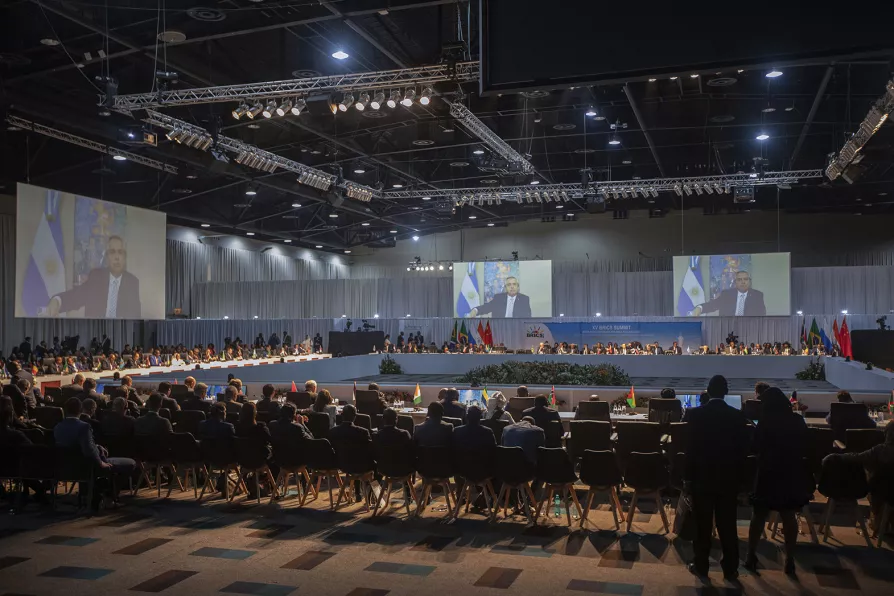The language of humiliation is a step towards a second civil war, argues RAMZY BAROUD
Time will tell what the future holds for Brics
Self-organisation, reducing dependency on the dollar, and possibly expanding the number of member states were all up for discussion at the Brics summit in Johannesburg earlier this week, writes TONY BURKE

 Argentinian President Alberto Angel Fernandez appears on a screen as he addresses the 15th Brics Summit, in Johannesburg, South Africa
Argentinian President Alberto Angel Fernandez appears on a screen as he addresses the 15th Brics Summit, in Johannesburg, South Africa
ECONOMIST Jim O’Neill (now Lord O’Neill) originally coined the phrase “Brics” in a 2001 Goldman Sachs economic paper, The World Needs Better Economic Brics, which discussed the prospects for four emerging economies — Brazil, Russia, India and China.
Brics soon became a term used by journalists, pundits and politicians as a soundbite and buzz-phrase.
Last week in Johannesburg, South Africa, this year’s conference of the Brics countries took place and the media sat up and took note.

The towering figures of the North American right and the South American left are set to clash this summer as Brazil hosts Brics, an alliance Trump is determined to smash, reports TONY BURKE













